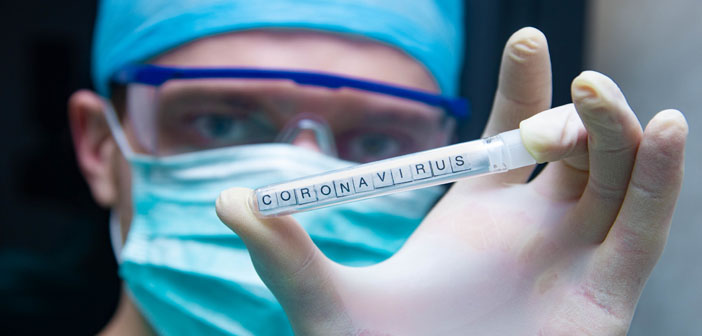Cold and flu seasons are always tough. But with the Coronavirus fears added to the mix, everyone is more concerned about preventing the spread of illness. Fortunately, all of these viral infections are killed quite easily and you can prevent their spread if you do become ill.

Steps to Stay Healthy
If you are healthy, you still play an important role in preventing the transmission of viruses and bacteria. The following tips will help you stay healthy and prevent the spread of bacteria:
Wash your hands properly
Use hand sanitizer only when hand washing isn’t possible
Don’t touch your face
Wash your hands after using the restroom
Avoid close contact with others
Don’t visit crowded places
If you visit a crowded place, choose a less busy time of day
Wash Your Hands Properly, Sanitize When Not Possible
The most important tip is to wash your hands properly. Over the past decade, fewer and fewer people wash their hands the right way, if they even wash them at all. Often, in public restrooms, people forgo hand washing in favor of using hand sanitizer. Unfortunately, hand sanitizer isn’t as effective at killing viruses and bacteria. Due to the overuse of hand sanitizers, some viruses and bacteria are even becoming resistant. That means that your hand sanitizer may not work very well against these infections.
To properly wash your hands, use warm water and soap, work up a lather, and scrub your hands for 20 seconds. Many health experts advise singing the Happy Birthday song in your head twice to estimate this time. Rinse thoroughly.
Understand that hand sanitizer doesn’t replace soap and water because the contaminants will remain on your skin. The only time you should be using hand sanitizer is when you don’t have the option to wash your hands.
Avoid Touching Your Face
Most people don’t realize how often they touch their faces, but your eyes, nose, and mouth are perfect entry points for any contagious virus or bacteria. If you find yourself brushing your hair from your face, pin it back. If you have a habit of rubbing your chin, take steps to break that habit.
Wash Your Hands After Using the Restroom
Even if you feel well, you could be sick and asymptomatic. That means that you should always actively prevent the spread of bacteria. The best way to do this is to wash your hands after you use the restroom. The Norovirus is a bacteria that is becoming immune to hand sanitizer. That means the only way to prevent its spread is proper hand washing.
Avoid Crowds and Close Contact
If you are an extrovert, this one will be hard for you, but it will help you stay healthy. If you don’t have to be around people who may potentially be ill, stay away. If you must visit a crowded place, try to choose a time of day that is less crowded. For example, you can go grocery shopping late evening or early morning to avoid crowds.
Prevent The Spread of Illness
If you are ill, you have the most important role in preventing the transmission of viruses and bacteria. That means that you have your own set of guidelines to prevent the spread of illness. They are:
Stay home
Wear a mask
Wash your hands
Cough or sneeze into a tissue
Stay Home
The most important part of preventing the transmission of an illness is to stay away from healthy people. That means that if you become ill, you should stay home. Illnesses vary in how long they are contagious. That means that if you feel well, you may not be safe to go out. Ask your doctor when it is safe for you to return to normal activity. The time frame can vary from 24 hours after symptoms cease to 14 days from the onset of symptoms. That’s why a diagnosis from your doctor is helpful in preventing the transmission of illness.
Wear a Mask
People who are healthy, do not have to wear a mask to prevent illness. However, if you are ill or have been ill, a mask is necessary to prevent the spread of germs. If you are not ill, do not purchase masks because this will limit the supply available for those who are.
Wash Your Hands
When you are ill, it is even more important that you wash your hands properly and wash them often. Viruses and bacteria spread from your hands to other surfaces and can infect anyone who may become in contact with them. Some bacteria can live for months on a hard surface, making this step critical in preventing the transmission of viruses and bacteria.
Coughing and Sneezing
If you have to cough or sneeze, try to do so into a tissue and throw it away immediately after use. Do not reuse tissues as the bacteria on them can spread to other surfaces. If a tissue is not available, cough into the bend of your elbow. This prevents the bacteria from getting on your hands. This is important because your hands are much more likely to touch objects and spread your germs.
Take Your Role Seriously
Each of us have our own role in preventing the spread of illness within our communities. Children and the elderly are often the most affected and have lower immune systems, making it more difficult for them to fight off the illness. Fortunately, the transmission of most viruses and bacteria is preventable if you take the appropriate steps. Hand washing is the most important and easiest step we can all take to protect ourselves and others from illness. Equally as important is if you become ill, please stay home. Most of us have many options available to us that prevent us from needing to leave our home. Take advantage of these options and prevent the spreading your germs.








